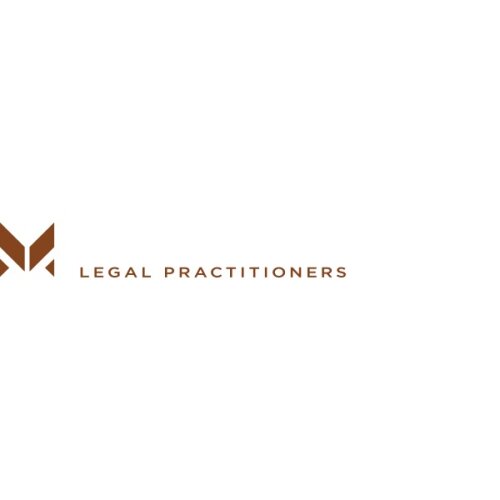Best Restructuring & Insolvency Lawyers in Lusaka
Share your needs with us, get contacted by law firms.
Free. Takes 2 min.
List of the best lawyers in Lusaka, Zambia
About Restructuring & Insolvency Law in Lusaka, Zambia
Restructuring and insolvency law in Lusaka, Zambia plays a critical role in supporting businesses and individuals experiencing financial distress. The legal framework is designed to provide mechanisms for companies and persons unable to pay their debts, enabling them to either restructure their obligations or initiate insolvency proceedings as a solution. Whether through formal legal processes or restructuring agreements, the law aims to balance the interests of debtors and creditors, maintain business continuity where possible, and protect the wider economic environment.
Why You May Need a Lawyer
Legal representation is essential when facing financial challenges related to restructuring or insolvency. Some common situations where you may require a lawyer’s help include:
- You are a business owner whose company is unable to meet its financial obligations and you want to explore restructuring options.
- Your business is facing liquidation or receivership and you need to navigate the legal process.
- You are a creditor concerned about recovering debts from an insolvent individual or company.
- You need assistance with negotiating settlements or out-of-court restructuring agreements.
- You are involved in disputes over priority of claims, secured assets, or creditor rankings during insolvency proceedings.
- You require guidance on directors’ responsibilities and liabilities during financial distress.
- You need to evaluate whether voluntary insolvency proceedings, such as bankruptcy, are appropriate for your situation.
A lawyer can provide advice tailored to your situation, help you navigate complex procedures, and represent your interests in court or negotiations.
Local Laws Overview
The principal legislation governing restructuring and insolvency in Lusaka, Zambia is the Insolvency Act, No. 9 of 2017, along with related provisions in the Companies Act. The law covers various processes, including corporate restructuring, liquidation, receivership, and personal bankruptcy. Key aspects include:
- Corporate Rescue Proceedings: The law provides for business rescue mechanisms to help viable companies recover from financial difficulties, including appointing business rescue practitioners.
- Liquidation: When a company is insolvent and cannot be rescued, winding up proceedings can be initiated either voluntarily or through court orders. Creditors’ rights and ranking are determined during the process.
- Receivership: Creditors may appoint a receiver to realize assets and pay debts when secured obligations are in default.
- Personal Insolvency: Individuals can file for bankruptcy if they are unable to pay their debts. The law outlines the procedures, effects, and discharge conditions for personal insolvency.
- Cross-Border Insolvency: The Insolvency Act incorporates principles for handling cases involving foreign assets or creditors, following international best practices.
- Role of the Official Receiver: The Official Receiver, under the Ministry of Justice, plays a supervisory role in insolvency proceedings, ensuring laws are followed and assets are managed appropriately.
- Protection of Creditors and Employees: The law includes provisions to protect the interests of secured creditors and prioritize employee claims under certain circumstances.
Understanding these laws is crucial for anyone navigating restructuring or insolvency in Lusaka.
Frequently Asked Questions
What is the difference between restructuring and insolvency?
Restructuring involves reorganizing a company’s debts, operations, or structure to restore financial health, often avoiding liquidation. Insolvency is the state where an individual or business cannot pay debts as they fall due and may lead to legal processes like liquidation or bankruptcy.
When should a business consider entering business rescue proceedings?
Business rescue is suitable when a company is financially distressed but has a reasonable prospect of recovery through restructuring, management changes, or new financing.
What is liquidation?
Liquidation is a legal process where a company’s assets are sold off to pay creditors due to insolvency, leading to the business’s closure and removal from the register.
Who can initiate insolvency proceedings in Zambia?
Insolvency proceedings can be initiated by the debtor (voluntary) or creditors (involuntary) by petitioning the court or relevant authorities.
What happens to employees during insolvency?
Employees’ claims, such as unpaid wages and benefits, are generally afforded priority among unsecured creditors, though payment depends on the available assets.
How are creditors paid in an insolvency process?
Creditors are paid according to statutory order of priority, which typically gives precedence to secured creditors, followed by preferred creditors (like employees), and then unsecured creditors.
Are directors liable for company debts in insolvency?
Directors are not automatically liable for company debts, but they may be held personally liable if found guilty of wrongful trading or failing in their duties during insolvency.
Can an insolvent individual be discharged from their debts?
Yes, under the Insolvency Act, individuals may be discharged from bankruptcy and released from most debts after meeting certain conditions and completing the bankruptcy process.
What is the role of the Official Receiver?
The Official Receiver is a government official who oversees insolvency proceedings, manages assets, investigates conduct, and ensures compliance with insolvency laws.
How can cross-border insolvency be addressed?
The law allows for cooperation with foreign courts and recognition of foreign insolvency proceedings, ensuring effective handling of cases involving overseas assets or creditors.
Additional Resources
If you need further information or assistance, the following resources may be helpful:
- Official Receiver (Ministry of Justice): The office supervises insolvency processes and can provide guidance about procedures.
- Judiciary of Zambia: Handles insolvency petitions, bankruptcy proceedings, and related court matters.
- Law Association of Zambia (LAZ): Offers a directory of licensed legal practitioners specializing in restructuring and insolvency.
- Zambia Revenue Authority (ZRA): Provides clarification on tax obligations during restructuring or insolvency.
- Local accounting and insolvency professionals: Many registered practitioners assist with business evaluations and preparing for formal proceedings.
Next Steps
If you or your business is experiencing financial distress and you believe restructuring or insolvency advice is needed, consider the following steps:
- Collect all relevant financial records and business documents.
- Evaluate your options, including informal restructuring, business rescue, or formal insolvency processes.
- Consult a qualified lawyer with expertise in restructuring and insolvency law in Zambia.
- Discuss your legal options, including potential risks and recommended courses of action.
- Follow your lawyer’s advice to initiate the chosen process and comply with all legal requirements.
Taking timely legal advice can protect your interests, maximize recoveries, and ensure compliance with Zambian law during restructuring or insolvency proceedings.
Lawzana helps you find the best lawyers and law firms in Lusaka through a curated and pre-screened list of qualified legal professionals. Our platform offers rankings and detailed profiles of attorneys and law firms, allowing you to compare based on practice areas, including Restructuring & Insolvency, experience, and client feedback.
Each profile includes a description of the firm's areas of practice, client reviews, team members and partners, year of establishment, spoken languages, office locations, contact information, social media presence, and any published articles or resources. Most firms on our platform speak English and are experienced in both local and international legal matters.
Get a quote from top-rated law firms in Lusaka, Zambia — quickly, securely, and without unnecessary hassle.
Disclaimer:
The information provided on this page is for general informational purposes only and does not constitute legal advice. While we strive to ensure the accuracy and relevance of the content, legal information may change over time, and interpretations of the law can vary. You should always consult with a qualified legal professional for advice specific to your situation.
We disclaim all liability for actions taken or not taken based on the content of this page. If you believe any information is incorrect or outdated, please contact us, and we will review and update it where appropriate.

















